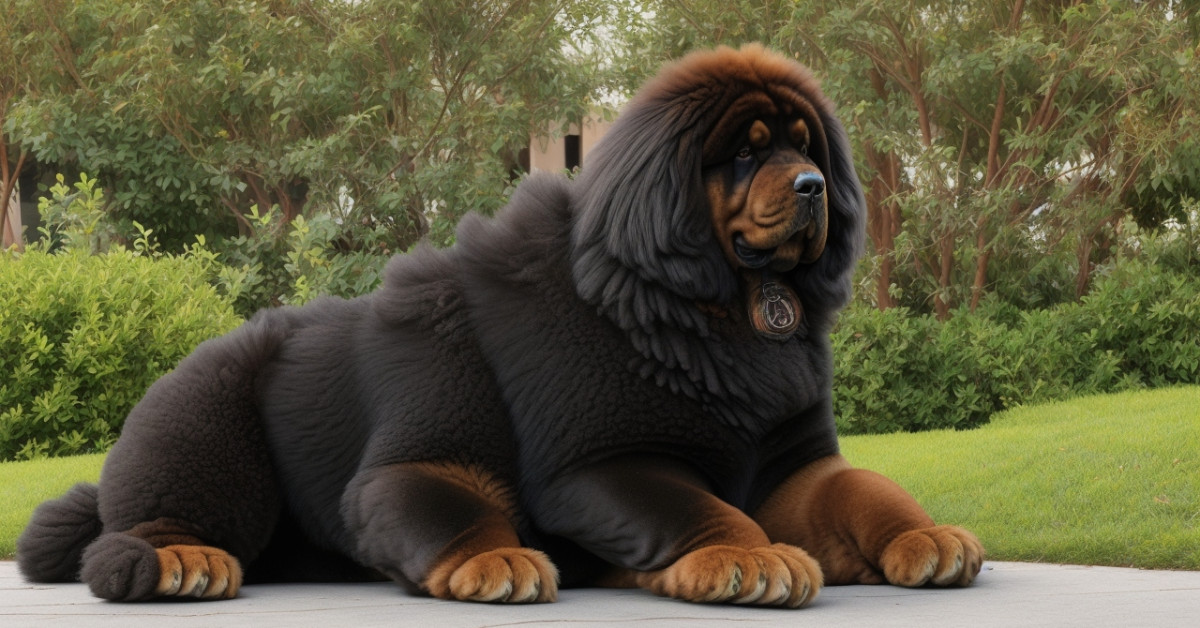Enthralling journey as we unravel the mystery surrounding one of the most majestic canine companions: Can you own a Tibetan Mastiff in the US?
Join us as we delve into the heart of dog ownership regulations, cultural allure, and the enigmatic aura of this ancient breed. Prepare to be captivated by insights that will transform your perception of what it means to have a larger-than-life pet in contemporary American life.
Whether you’re a seasoned dog enthusiast or merely dog-curious, this is the definitive guide you can’t afford to miss—unveiling the truth about living with the noble Tibetan Mastiff stateside.
Why Are Tibetan Mastiffs Illegal in Some Places?
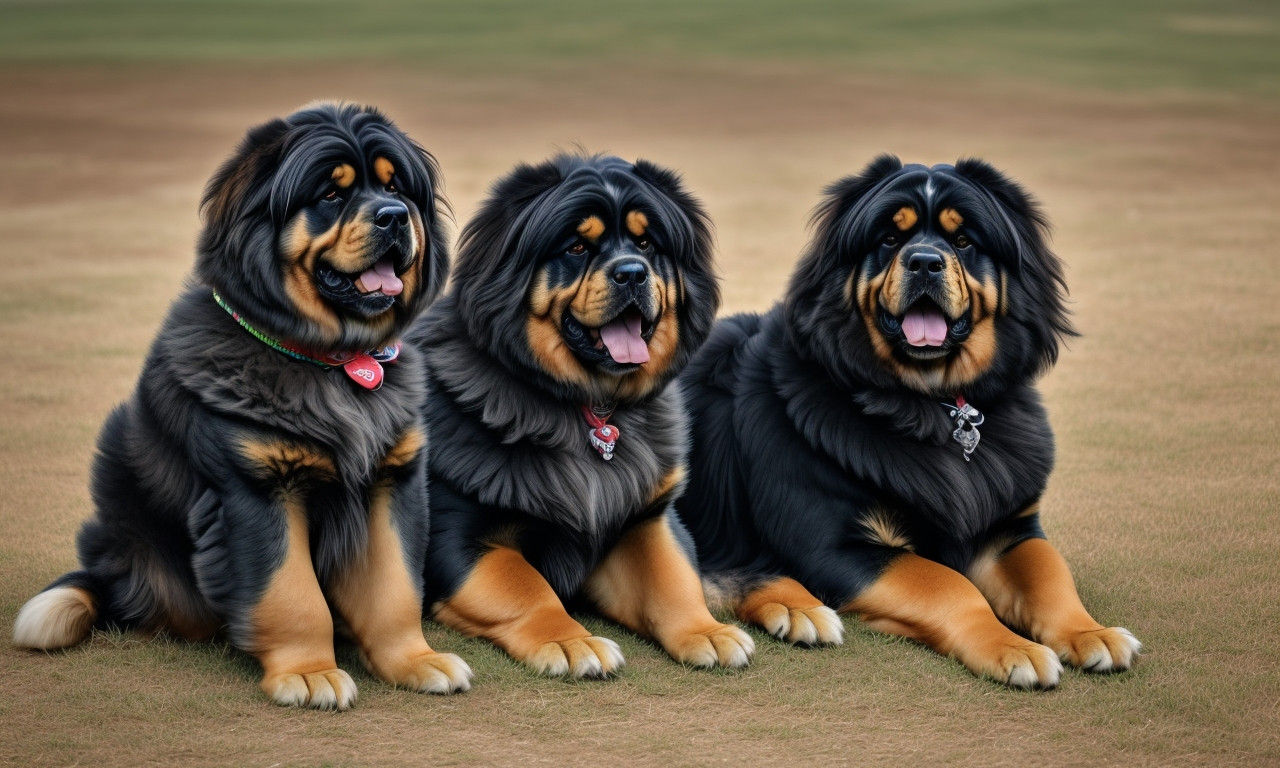
Owning a Tibetan Mastiff in the United States is generally legal, but there are exceptional circumstances where they might be prohibited or restricted. These large and impressive dogs are known for their majestic appearance and were traditionally bred by nomadic cultures of Tibet, China, Nepal, and India to protect sheep from predators like wolves and leopards.
The legality of keeping a Tibetan Mastiff can vary based on local laws and ordinances, which may restrict ownership of certain breeds. Reasons for such restrictions can include the breed’s potential for aggression, particularly if not properly trained or socialized, and its sheer size, which can make it a challenging pet to handle for inexperienced owners. These factors can contribute to safety concerns for both the public and animals.
In some places, Tibetan Mastiffs and similar breeds might be subject to specific regulations such as mandatory spaying/neutering, microchipping, obtaining special permits, or adherence to leash and muzzling laws when in public spaces. The rationale behind these laws is typically to prevent dog attacks and reduce the likelihood of negative interactions with people and other animals.
Additionally, since Tibetan Mastiffs are a relatively rare breed in the United States, they can be quite expensive, which might also deter ownership. Breeders might also have strict guidelines for potential owners to ensure that the dogs will live in an appropriate environment.
If you’re considering owning a Tibetan Mastiff, it’s critical to check the local laws and regulations in your area. This includes understanding any breed-specific legislation that might affect your ability to own one of these dogs. It’s also vital to ensure that you have the space, time, and resources to provide proper care for a Tibetan Mastiff, as they require space to roam, exercise, and a firm, consistent training regimen.
Lastly, proper socialization from a young age is crucial for a Tibetan Mastiff to become a well-adjusted member of the family and community. Their strong guardian instincts can be a challenge without the right training, so prospective owners should be committed to extensive and ongoing socialization and training efforts.
Are Tibetan Mastiffs Rare?
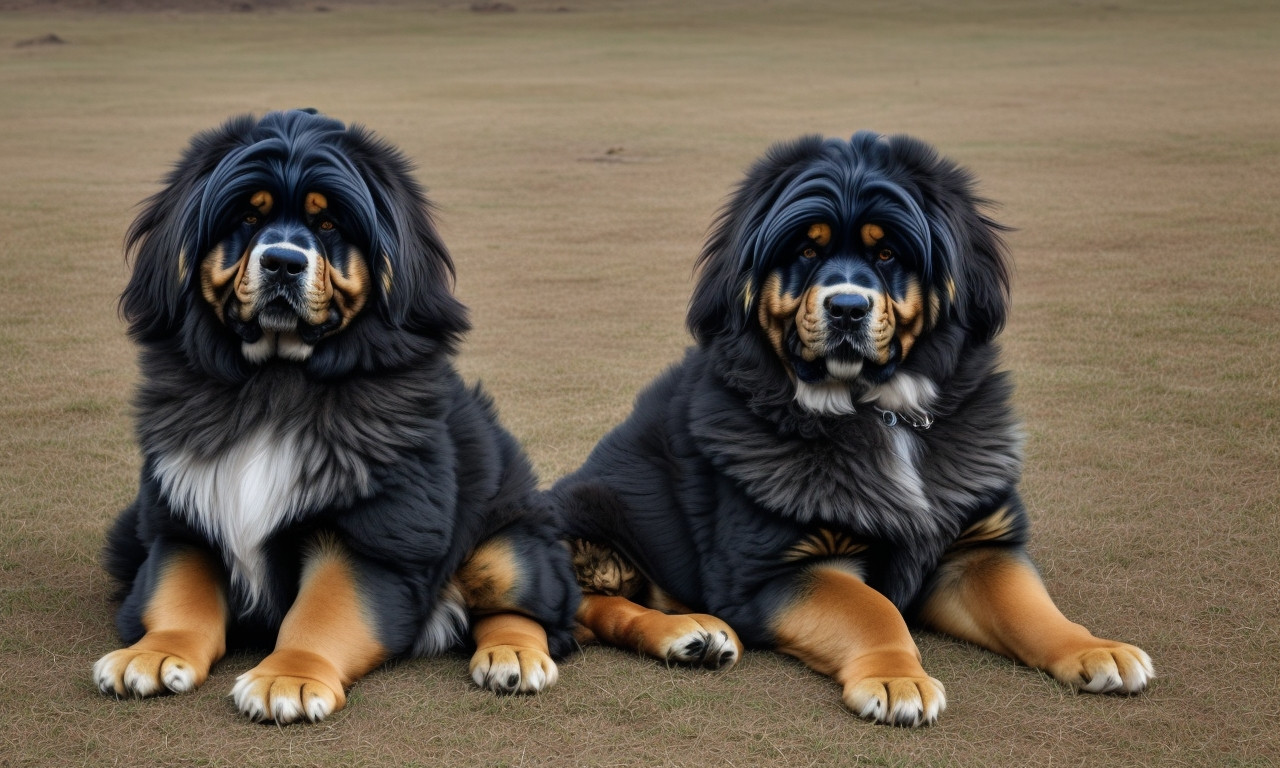
Yes, you can own a Tibetan Mastiff in the United States. Tibetan Mastiffs are indeed uncommon in comparison to more typical dog breeds, contributing to their aura of exclusivity and mystique. However, they are available through breeders who specialize in this particular breed. Due to their rarity, potential owners should expect that these dogs might come with a rather high price tag, not only in terms of the initial cost to purchase one but also for their upkeep, as they require specific care due to their large size, thick fur, and temperament traits.
When looking for a Tibetan Mastiff, it is important to research and find reputable breeders who follow ethical breeding practices and provide healthy, well-socialized puppies. Prospective owners should be well-informed about the breed’s characteristics, including their need for space, their protective nature, and possible challenges in training due to their independent and strong-willed disposition.
Bear in mind that owning a Tibetan Mastiff comes with a significant commitment. They are better suited for more experienced dog owners who can provide firm, consistent training, socialization from an early age, and who understand the breed’s needs for companionship and space to roam. Due to their protective instincts, Tibetan Mastiffs also need an owner who can manage and channel their guarding behaviors appropriately.
Additionally, owning a Tibetan Mastiff or any large breed dog requires adherence to local regulations and bylaws which may impose licensing requirements, leash laws, or other stipulations. Before acquiring a Tibetan Mastiff, ensure that you are fully prepared for the responsibility and are capable of caring for a large, active, and independent breed such as this.
How Much Does a Tibetan Mastiff Cost?
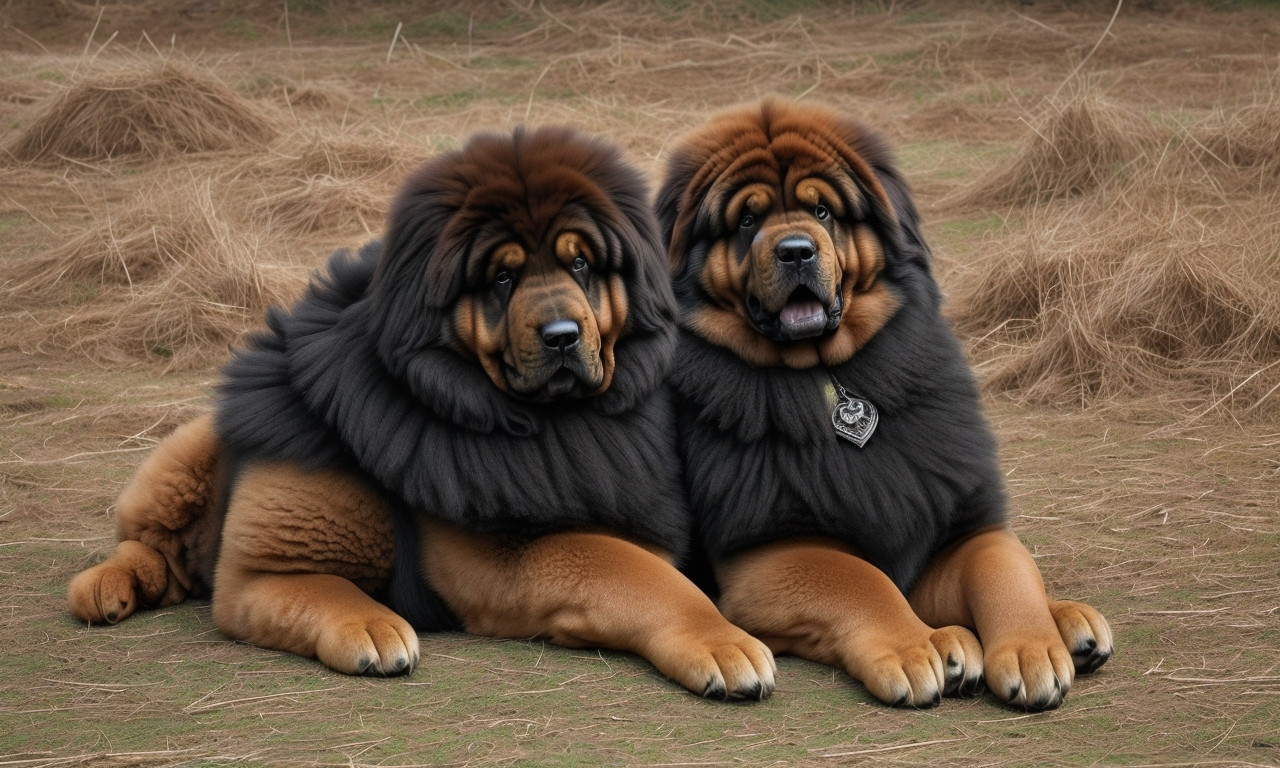
Ownership of a Tibetan Mastiff in the United States is not prohibited, but it’s important for potential owners to understand both the breed-specific laws that might affect them and the costs involved in owning such a large and unique dog breed.
As of my last update, no federal laws in the U.S. ban the ownership of any particular dog breed outright. However, there could be local or state regulations that you need to be aware of. Some places have legislation regarding large or potentially aggressive dogs, which may include the Tibetan Mastiff. Always check your local laws before deciding to acquire any dog.
Regarding the cost, owning a Tibetan Mastiff can be quite expensive. The initial purchase price for a Tibetan Mastiff puppy can vary significantly based on the breeder, lineage, and location. Puppies can cost anywhere from $1,500 to $5,000, with some exceptional lineage examples commanding prices up to $10,000 or more. If you are looking at acquiring a show-quality puppy from a top breeder, you should expect the higher end of this price range.
In addition to the initial purchase price, there are ongoing costs to consider:
-
Food: Tibetan Mastiffs are giant breed dogs that require a substantial amount of food. Given their size, the cost of feeding will be higher than for smaller breeds.
-
Veterinary care: All dogs need regular veterinary care, including vaccinations, flea and tick prevention, heartworm prevention, and check-ups. Due to their size and predisposed health conditions, Tibetan Mastiffs may require more expensive healthcare.
-
Grooming: While Tibetan Mastiffs do not require professional grooming as frequently as some other breeds, they do have a thick double coat that needs regular brushing and occasional baths, which can be a challenge due to their size.
-
Training and socialization: Tibetan Mastiffs are independent and strong-willed dogs, so proper training and socialization are essential. This may include the cost of obedience classes, which can be especially important for managing a dog of this size and temperament.
-
Insurance: Given their size and potential health issues, pet insurance for a Tibetan Mastiff may be more expensive than for smaller breeds.
-
Housing and transportation: Tibetan Mastiffs need ample space to move and exercise. Housing must be adequately secured with a fenced yard, and transporting a dog of this size can be more complicated and costly.
In summary, owning a Tibetan Mastiff in the U.S. is a considerable commitment, both legally and financially. Prospective owners should thoroughly research and prepare for the costs and responsibilities associated with this majestic breed.
The Best Environment for Tibetan Mastiffs
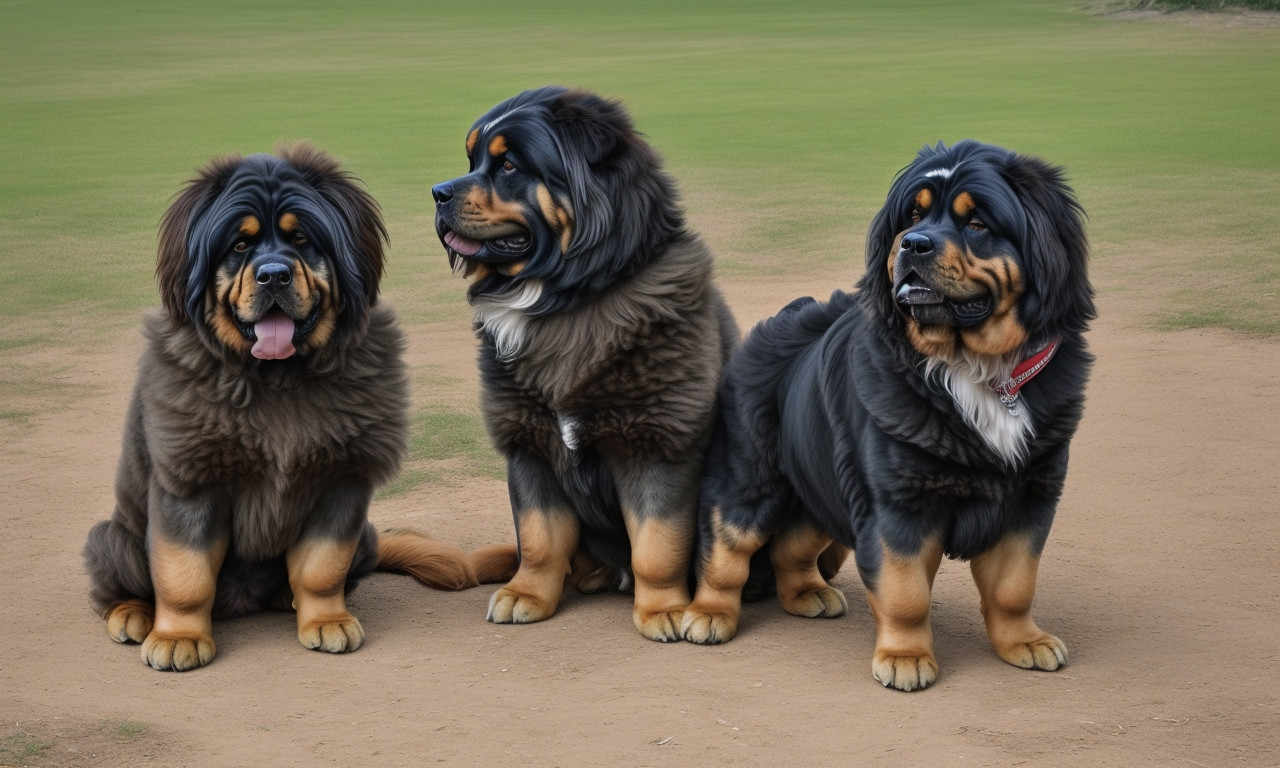
Owning a Tibetan Mastiff in the United States is indeed possible, but it involves careful consideration of the environment you can provide for such a majestic and powerful breed. Tibetan Mastiffs are known for their impressive size, protective nature, and independent temperament, making them suitable for certain types of owners and living conditions.
To ensure the best environment for a Tibetan Mastiff, prospective owners should consider the following factors:
-
Space: Tibetan Mastiffs require ample space to roam and exercise. A large, securely fenced yard is ideal for them to move around freely. An apartment or a small house with limited outdoor space is generally not suitable for this large breed.
-
Climate: These dogs have a heavy double coat, originally bred to withstand the harsh climate of the Tibetan Plateau. Therefore, they are more comfortable in cooler climates and might suffer in hot and humid environments. It’s crucial to provide a cool, shaded area and plenty of fresh water during warmer months.
-
Exercise: While Tibetan Mastiffs are not as high-energy as some other breeds, they still need regular exercise to maintain good health and a balanced temperament. Daily walks, playtime in the yard, and mental stimulation are essential for their well-being.
-
Training and Socialization: Early and consistent training is vital to manage the strength and protective instincts of a Tibetan Mastiff. Socialization with people and other animals from a young age can help them become more adaptable and less wary of strangers.
-
Lifestyle: Tibetan Mastiffs are protective and may be aloof with strangers, making them excellent guard dogs. They are best suited for owners who have experience with large, strong-willed breeds. A quiet household without frequent visitors or a rural setting may be more appropriate, as the breed can be territorial.
-
Grooming: Their thick coats need regular grooming to prevent matting and manage shedding, especially during the transition between seasons when they shed their undercoat.
-
Regulation and Legislation: It’s important for potential owners to be aware of local laws and regulations regarding pet ownership, as some areas may have restrictions on owning certain breeds.
Prospective Tibetan Mastiff owners in the US should thoroughly research the breed and assess their ability to meet its needs. They should also consider adopting from shelters or rescues or purchasing from reputable breeders to ensure the health and well-being of their future companion. With the right environment and dedicated care, Tibetan Mastiffs can be loyal and loving members of the family.
Summary

Yes, you can own a Tibetan Mastiff in the US. Tibetan Mastiffs are recognized by the American Kennel Club and are legal to own in the United States. However, potential owners should be aware that these dogs require responsible ownership due to their size, strength, and temperament. They are best suited for those with experience in dog training and ownership, and they need ample space and exercise. Be sure to check local laws and regulations as some areas may have specific restrictions or requirements for owning large and potentially aggressive breeds. As with any breed, proper socialization, training, and care are essential for the well-being of the dog and the community.
